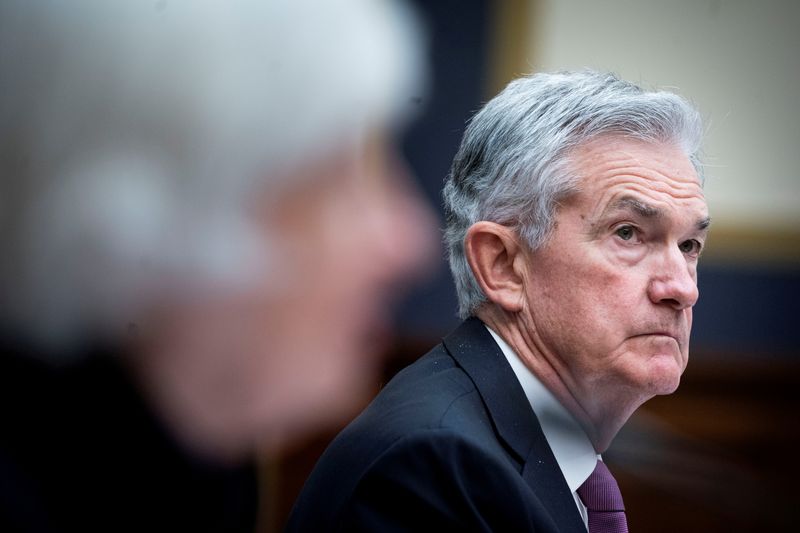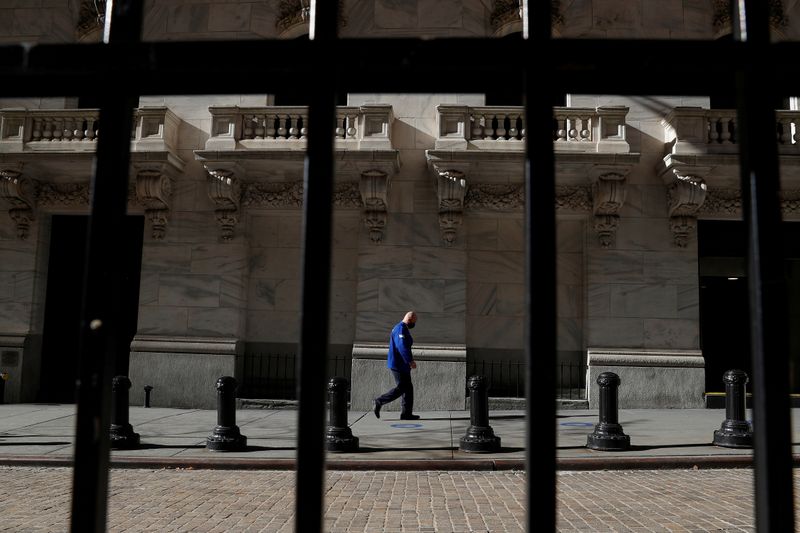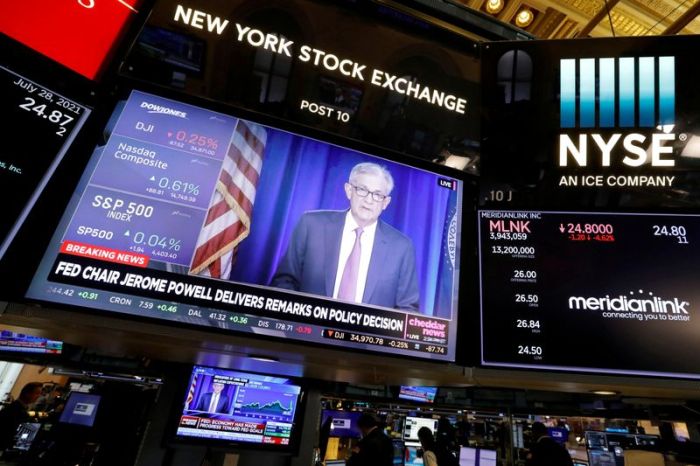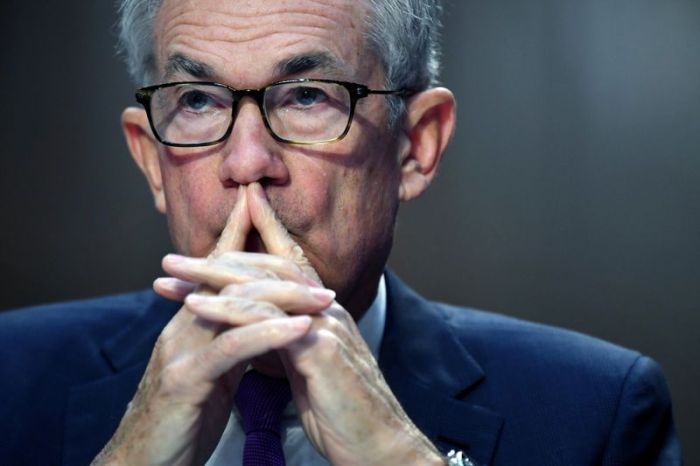NEW YORK (Reuters) – U.S. bank stocks rose on Monday as senior bankers and industry figures welcomed Federal Reserve Chair Jerome Powell’s nomination by President Joe Biden for a second four-year term.
A Republican and former private equity lawyer, Powell has long been favored by Wall Street bankers and fund managers who saw him as one of their own, sympathetic to their gripes that the industry has become over-regulated as a result of the 2007-2009 financial crisis.
Biden, in a statement emailed to reporters, paid tribute to the “decisive action” which the Fed had taken in response to the COVID-19 pandemic.
Senior bankers echoed the presidential praise for Powell’s swift and steady hand.
“Chairman Powell has been a steadying force throughout the pandemic and I’m glad to see him continue in this role,” Christiana Riley, chief executive of Deutsche Bank’s U.S. business, said.
“Consistency at the top of the Federal Reserve is reassuring during this critical point in the post-pandemic recovery.”
The S&P 500 bank index was up 2.6%, on pace for its best day in two months.
Powell presided over a historic run-up in stocks. The S&P 500 has risen around 70% under Powell, fueled in part by extraordinary measures taken during the coronavirus pandemic. The Fed added $4.4 trillion to its balance sheet during the pandemic, purchasing assets including Treasuries and mortgage-backed securities (MBS).
Over the past four years, Powell also backed a review led by Fed vice chair for supervision Randal Quarles of key post-crisis regulations, agreeing with Quarles’ view that many were too blunt and onerous and should be better tailored to banks’ risks.
Among the most contentious changes were revisions to the “Volcker Rule” curbing speculative bank investments; scrapping a requirement for big banks to hold capital against certain swap trades; and stripping the Fed of its power to fail banks on their annual “stress tests” based on subjective concerns.
Powell’s perceived “bank-friendly” agenda had led Democrat progressives to favor Federal Reserve board member Lael Brainard, who had won respect from progressives for opposing Quarles’ efforts to ease bank regulations.
Brainard has, instead, been appointed vice chair.
One area of lingering concern for banks might be Biden’s failure to announce a new regulatory chief to replace current head of supervision Randal Quarles, who stepped down from his role overseeing the country’s biggest banks in October.
Brainard had been favorite for that role but did not want it, according to two people familiar with the matter.
Biden said the supervision post and other Fed picks would be announced in early December.
Some analysts and investors raised concern that Biden might appoint a candidate with an aggressive regulatory agenda to satisfy progressive Democrats unhappy at Powell’s reappointment.
“The oversight role is still a risk for the banks. And so that’s something we’re going to pay attention to,” said Jack Ablin, chief investment officer at Cresset Capital Management in Chicago.
Jaret Seiberg, an analyst at Cowen Washington Research Group, said the best outcome banks can hope for would be a candidate with a similar agenda to Brainard while a politically-motivated appointment could be more negative for banks.
“Higher capital requirements and tougher CCAR (stress tests) are inevitable,” Seiberg said.
Kevin Fromer, CEO of the Financial Services Forum, which represents the largest eight U.S. banks and their CEOs, congratulated both Powell and Brainard.
“We expect regulators will continue to hold the largest banks to the high regulatory and supervisory standards that have remained in place to support a resilient and essential part of the U.S. financial system.”
(Additional reporting by David Henry and Sinead Carew in New York and by Pete Schroeder in Washington; Editing by Nick Zieminski, Mark Potter and Chizu Nomiyama)





















